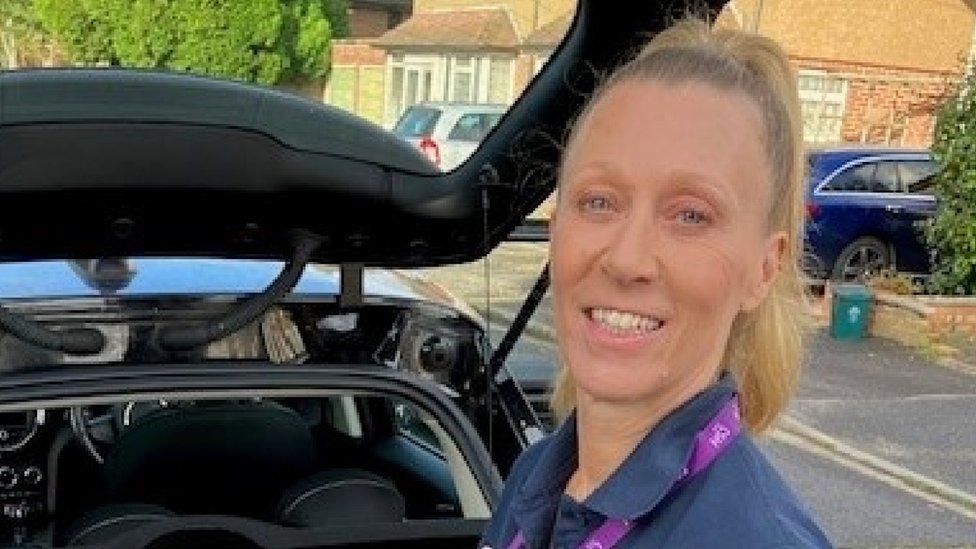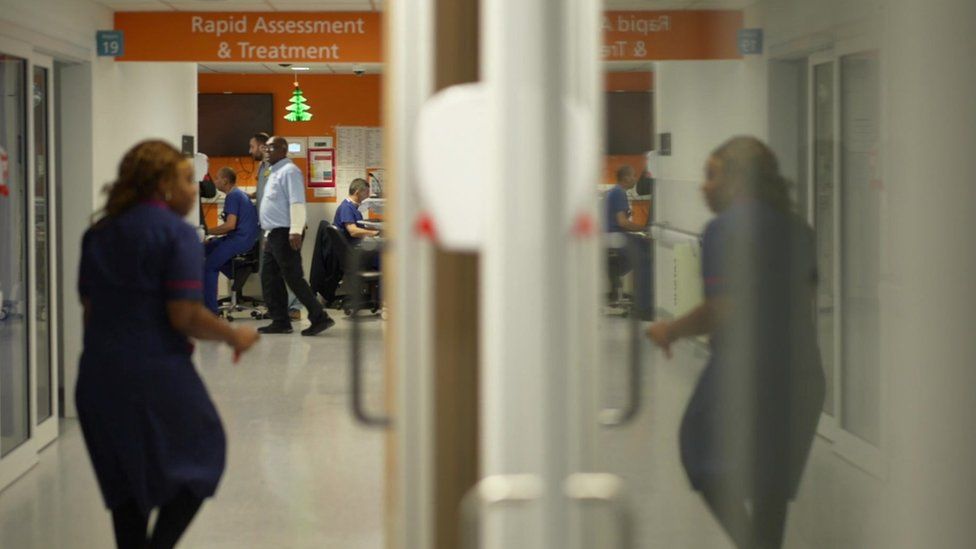Health workers will get promised payments
Published26 minutes agoShareclose panelShare pageCopy linkAbout sharingBy Hugh PymHealth editorMore than 27,000 healthcare workers in England are set to receive one-off payments of at least £1,600 in their April pay packets. The money will go to staff such as community nurses, physiotherapists and cleaners who do NHS work, but are employed by non-NHS organisations. It follows a campaign for these workers to get the same pay award already made to NHS staff last year in England.That was a lump sum of at least £1,655 and a 5% pay rise.Health Secretary Victoria Atkins said the move would ensure “hardworking staff” and the organisations they work for can fully benefit from the NHS pay deal. “I hugely value the hard work of all our healthcare staff, and those working in non-NHS organisations offer vital support to patients.”I want to ensure that eligible staff receive these payments, which is why we chose to deliver this funding and why we have taken the decision to relax the financial eligibility criteria employers must meet,” she said.But one employers’ group said the process was unfair, and some would still not get the money.What’s happening?The pay award to NHS staff was made last May. But staff working in frontline NHS settings who are employed by other organisations did not get the one-off payment, even though they are on similar contracts to their NHS counterparts under a system agreed with unions, known as Agenda For Change. These include not-for-profit community groups known as social enterprises, founded to take on outsourced services. In November 2023, the Government said it would pay out the money but employers, who had previously threatened legal action, were told to apply and demonstrate that they could not afford to make the payments from their own resources. In February 2024, an employers’ organisation – Social Enterprise UK – told BBC News it was concerned about delays.Some organisations with staff on Agenda for Change contracts have now been told the funding will be transferred in time for April pay packets. One of them, CSH Surrey, which provides community nursing and therapy services to adults and children, welcomed the announcement. Steve Flanagan, its chief executive, said: “We have all fought hard for this and I really appreciate the support from partners across the NHS with this campaign”. Physiotherapist Julie Tollit told BBC News in October she felt “completely demoralised” when she was told she would not receive the payment. Following the latest announcement, she said: “As a healthcare worker at a social enterprise who provides vital NHS community services, receiving this payment recognises how I am – and have always been – part of the NHS family.” NHS pay: Health staff to begin legal fight over Covid bonusBut employers whose staff do NHS work but not on Agenda for Change contracts will not get the government funding. Dan Gregory, director of Social Enterprise UK, said: “While we’re relieved to see some of our members receive this long-awaited funding, the process itself is fundamentally unfair, failing to recognise their crucial role in delivering frontline care. Some social enterprises have not received funding, while many did.”Other health staff who didn’t get the lump sum payment include some “bank staff” who provide temporary cover for hospital trusts to fill rota gaps. The Royal College of Nursing has also been campaigning on behalf of members in GP practices.And some members of the Unite union have staged industrial action when employers have failed to make the payments. These include cleaners, porters and other NHS facilities staff. Separate pay deals have been agreed in Scotland, Wales and Northern Ireland. More on this storyHealth staff win Covid bonus after legal threatPublished6 November 2023Health staff to begin legal fight over Covid bonusPublished26 October 2023Some NHS temporary staff miss out on full pay dealPublished21 July 2023
Read more →


